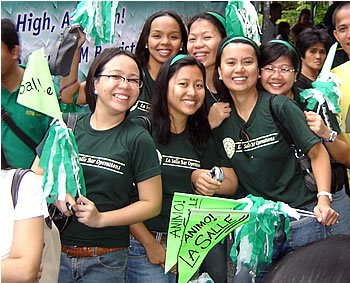
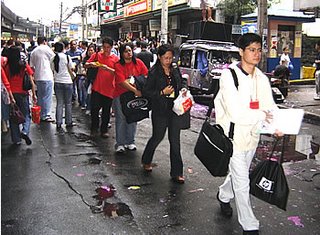
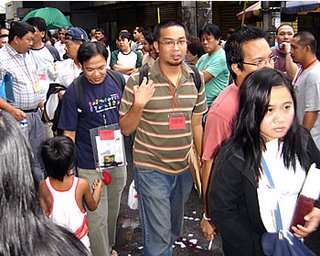
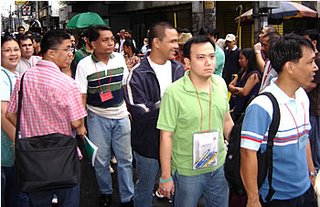
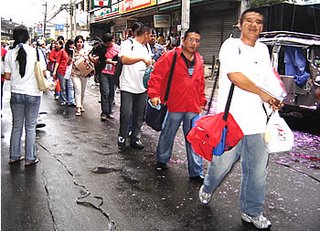
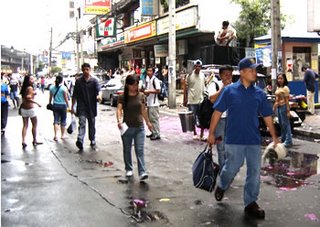
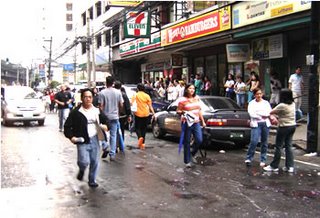
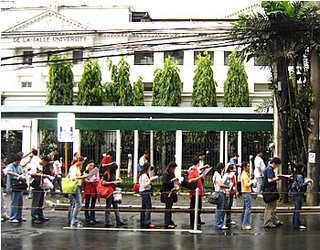
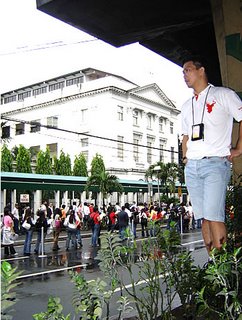
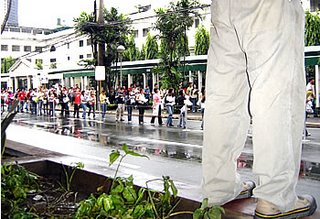
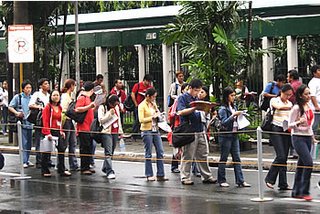
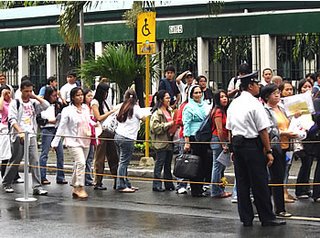
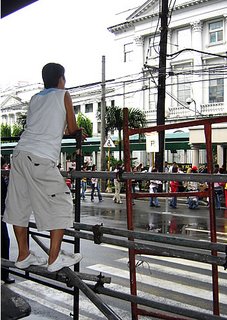
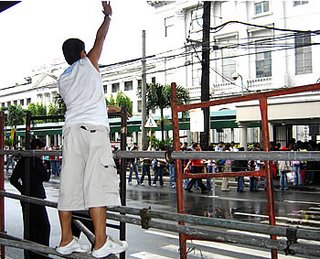
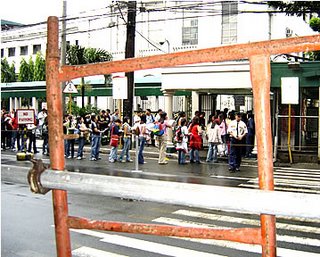
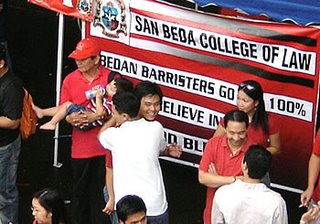
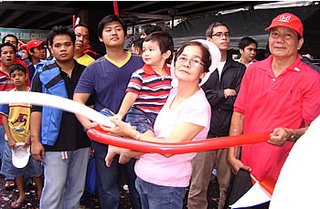
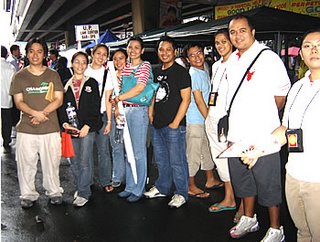
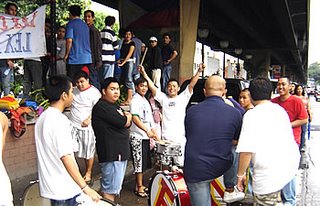
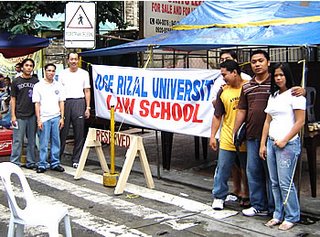
Some 6,344 law graduates (a record number) are taking the bar examinations on the four Sundays of September at the De La Salle University campus in Taft Avenue, Manila. Administered by the Supreme Court, the bar exam is the final hurdle for these graduates from some 100 law schools in the Philippines after some eight years of hard work and rigorous studies.
The annual bar exams are considered to be the most celebrated licensure exam in the Philippines. (Six or seven of our country’s presidents were lawyers, while a lot of our senators and congressmen, past and present, are lawyers.) The various law schools, academic organizations, fraternities and sororities conduct their “bar operations” in support of their graduates or members. They provide food, transportation, review materials and encouragement, in the midst of a fiesta atmosphere in front of DLSU. As early as 2 or 3 in the morning, these groups stake out their places setting up tents, tables and chairs, sound equipment, etc. As the examinees start coming in at around 5 AM, there’s also fireworks, street dancing, cheers and words of encouragement from anxious relatives, schoolmates and friends. The grandest celebration takes place at the end of the exams, which falls this year on September 24.
The area in front of DLSU, from Quirino Avenue to Vito Cruz, is closed to traffic from 4 AM up to 6 PM. Some 1,398 court personnel are overseeing the exams, with bomb disposal experts, police officers and medical teams providing assistance to the examinees and the crowd waiting outside DLSU.
Previously, a bar examinee who failed for three straight times was required to take a one-year refresher course in law schools. After the refresher course, he or she was allowed to take the bar exams again. Should he fail to pass the bar, he/she was again required to take the refresher course. Each retake, the examinee was required to pay higher fees. Since last year, however, the Supreme Court has implemented the “five strike rule” which means that a bar examinee is only allowed to take the bar exams a total of five times. Based on studies, most of the bar passers are first-timers, and the Supreme Court has decided that if a person doesn’t pass the bar even after five takes, he/she most probably won’t ever pass the bar. The fewer number of bar takers would then lighten the load on the bar examiners (lawyers selected by the Supreme Court to draft the questions and check the papers).
Anyone who wants to become a lawyer is required to first take a preparatory 4-year college course. This may be any course - Education, Engineering, Accounting, science courses, etc - as long as the required subjects are completed. My preparatory course was AB English (I am a Philippine Christian University graduate in the late 70’s), and I would advise any high school graduate thinking about becoming a lawyer to consider as a good preparatory course the following: Journalism, Economics, Accounting, and Legal Management.
Then the college graduate takes the 4-year Bachelor of Laws in any recognized school (the “LlB” stands for “Lleyes Baccalaureate”). In most law schools, except for the premier schools like UP, Ateneo and San Beda, majority of the students are working students and classes are usually scheduled on evenings. I’m a proud graduate of Jose Rizal College (now known as Jose Rizal University) and I also experienced the hardships and travails of working in the daytime and going to law school at night.
After graduating from law school, he/she now takes the six-month review course.
To this year’s bar examinees, I will say just one thing about the bar exams:
Quiz lang yan!
Thursday, September 14, 2006
Bar exams 2006
Subscribe to:
Post Comments (Atom)






No comments:
Post a Comment